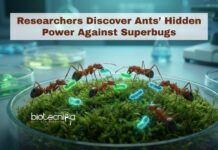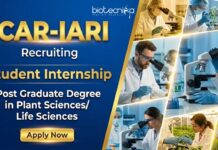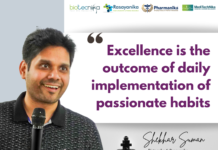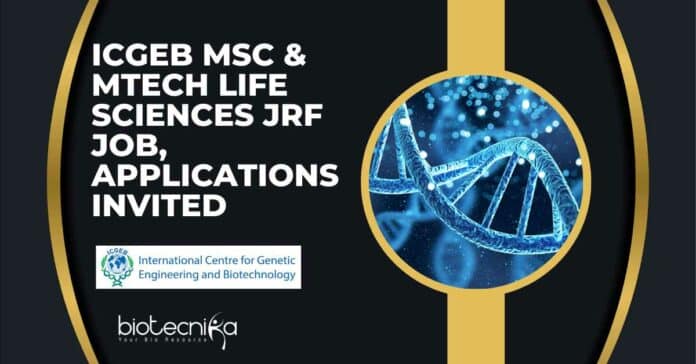ICGEB Delhi Research Post For MSc, MTech Life Sciences – Applications Invited
ICGEB Delhi Research Post For MSc, MTech Life Sciences – Applications Invited. MSc & MTech life sciences Junior Research Fellow job at ICGEB. Interested and eligible applicants can check out all of the details on the same below
This job expires in
VACANCY NOTICE
JRF POSITION AVAILABLE
One Junior Research Fellow (JRF) Position is available in the Microbial Engineering group, in the lab of Dr. Syed Shams Yazdani in an Indo-USA collaborative project.
Name of the Post: Junior Research Fellow (cyanobacteria engineering)
No. of Posts: 01
About the Project & Duration: The project duration is one year, and it is related to engineering cyanobacteria for aviation fuel production.
Tenure & Salary: Please note that this is a temporary project position whose duration is only for the tenure of the sanctioned project. The salary will be as per DST norms, based on qualification and experience.
How to Apply
Interested candidates should email their latest curriculum vitae and cover letter (Cover letter must mention pertinent skills) with a detailed description of scientific experience to [email protected], with the subject mentioned as “Application for JRF position in Microb Engg Group”. Only short-listed candidates will be contacted for an interview.
The Closing date for applications: 25th May 2023
Job description: The selected candidate will be conducting Molecular/Synthetic biology experiments to engineer the genome of cyanobacterial strains and photobioreactor studies for the production of hydrocarbons. The candidate will also be involved in preparing detailed technical reports summarizing the result and for the timely submission of these reports.
Qualifications: M.Sc/ M.Tech, Life Sciences or other related field with experience in molecular biology techniques.
Desirable qualifications: Candidates with experience in handling cyanobacteria, and performing metabolic and genome engineering will be preferred.
- Can you describe your experience and expertise in molecular biology techniques? Provide specific examples of techniques you have utilized and the purpose of their application in your previous research or academic projects. Answer: Yes, during my master’s program, I gained extensive experience in molecular biology techniques such as DNA extraction, PCR, cloning, and gene expression analysis. For instance, I successfully cloned a specific gene of interest into a plasmid vector and performed expression studies to investigate its function in a particular biological pathway. These techniques allowed me to gain a deep understanding of molecular biology principles and their practical applications.
- Have you worked with cyanobacteria in your previous research or academic projects? If yes, please elaborate on your experience, including any specific techniques or experiments you have conducted with cyanobacteria. Answer: Yes, as part of my master’s thesis, I conducted research on cyanobacteria and their potential applications in biofuel production. I worked with different strains of cyanobacteria and performed genetic engineering to enhance their hydrocarbon production capabilities. This involved manipulating their metabolic pathways through gene editing techniques, such as CRISPR-Cas9, to optimize their performance. Additionally, I conducted photobioreactor studies to evaluate the efficiency of hydrocarbon production under different growth conditions.
- How would you approach the task of engineering the genome of cyanobacterial strains? Provide an outline of the steps and techniques you would employ to achieve successful genetic modifications. Answer: To engineer the genome of cyanobacterial strains, I would start by identifying the target genes or metabolic pathways for modification. Next, I would design specific gene-editing strategies, such as CRISPR-Cas9 or homologous recombination, to introduce desired changes in the cyanobacterial genome. This would involve designing and synthesizing appropriate DNA constructs, transforming them into cyanobacterial cells, and screening for successful integration. I would then validate the genetic modifications through molecular analysis techniques such as PCR and sequencing. Finally, I would evaluate the phenotypic changes resulting from the genetic modifications, such as increased hydrocarbon production, through physiological and biochemical assays.
- Can you describe a time when you encountered challenges in performing metabolic and genome engineering experiments? How did you overcome those challenges and ensure the success of your experiments? Answer: During my previous research, I faced challenges in optimizing the efficiency of metabolic engineering in cyanobacteria. To overcome this, I implemented a systematic approach by thoroughly reviewing the literature on cyanobacterial metabolism and pathway engineering. I collaborated with other researchers in the field to seek their insights and expertise. Additionally, I conducted extensive optimization experiments, adjusting various parameters such as culture conditions, media composition, and inducer concentrations. Through these iterative optimizations and the support of my research team, I successfully achieved the desired metabolic modifications and improved hydrocarbon production in cyanobacterial strains.
- How do you ensure the accuracy and reliability of your experimental results in the field of genome engineering? Please describe any quality control measures or validation techniques you have employed in your previous research. Answer: In genome engineering experiments, ensuring the accuracy and reliability of results is crucial. To maintain quality control, I follow standard protocols for DNA manipulation and cloning to minimize errors during construct assembly. I regularly perform control experiments and replicate key experiments to ensure reproducibility. Additionally, I validate the genetic modifications through rigorous molecular analysis, such as DNA sequencing, to confirm the desired changes in the genome. Moreover, I maintain detailed documentation of experimental procedures and data analysis to ensure traceability and facilitate result verification.
Check the notification below
Editor’s Note: ICGEB Delhi Research Post For MSc, MTech Life Sciences – Applications Invited. Please ensure that you are subscribed to the Biotecnika Times Newsletter and our YouTube channel to be notified of the latest in the industry. Follow us on our social media like Twitter, Telegram, Facebook


























